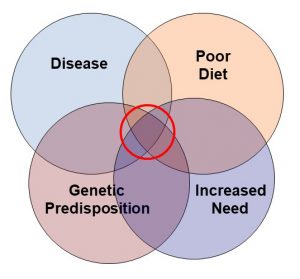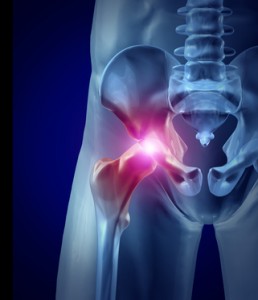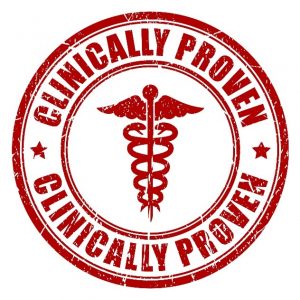Who Benefits Most From Omega-3s?
Author: Dr. Stephen Chaney

If you were around in the 60’s, you might remember the song “England Swings Like a Pendulum Do”. It was a cute song, but it had nothing to do with pendulums. This week I am talking about something that really does resemble a pendulum – the question of whether omega-3s reduce heart disease risk.
There is perhaps nothing more confusing to the average person than the “truth” about omega-3s and heart disease risk. The headlines and expert opinion on the topic swing wildly between “omega-3s reduce heart disease risk” to “omega-3s have no effect on heart disease risk” and back again. To me these swings resemble the swings of a pendulum – hence the title of this article.
Part of the reason for the wild swings is that journalists and most “experts” tend to rely on the latest study and ignore previous studies. Another contributing factor is that most journalists and experts read only the main conclusions in the article abstract. They don’t read and analyze the whole study.
So, in today’s “Health Tips From the Professor” I plan to:
- Analyze 3 major studies that have influenced our understanding of the relationship between omega-3 intake and heart disease risk. I will tell you what the experts missed about these studies and why they missed it.
- Summarize what you should know about omega-3 intake and your risk of heart disease.
Why Is The Role Of Omega-3s In Preventing Heart Disease So Confusing?
 In answering that question, let me start with what I call “Secrets Only Scientists Know”.
In answering that question, let me start with what I call “Secrets Only Scientists Know”.
#1: Each study is designed to disprove previous studies. That is a strength of the scientific method. But it guarantees there will be studies on both sides of every issue.
Responsible scientists look at all high-quality studies and base their opinions on the weight of evidence. Journalists and less-responsible “experts” tend to “cherry pick” the studies that match their opinions.
#2: Every study has its flaws. Even high-quality studies have unintended flaws. And I have some expertise in identifying unintended flaws.
I published over 100 papers that went through the peer review process. And I was involved in the peer review of manuscripts submitted by other scientists. In the discussion below I will use my experience in reviewing scientific studies to identify unintended flaws in 3 major studies on omega-3s and heart disease risk.
Next, let me share the questions I ask when reviewing studies on omega-3s and heart disease. I am just sharing the questions here. Later I will share examples of how these questions allowed me to identify unintended flaws in the studies I review below.
#1: How did they define heart disease? The headlines you read usually refer to the effect of omega-3s on “heart disease”. However, heart disease is a generic term. In layman’s terms, it encompasses angina, heart attacks, stroke due to blood clots, stroke due brain bleeds, congestive heart failure, impaired circulation, and much more.
Omega-3s have vastly different effects on different forms of heart disease, so it is important to know which form(s) of heart disease the study examined. And if the study included all forms of heart disease, it is important to know whether they also looked at the forms of heart disease where omega-3s have been shown to have the largest impact.
#2: What was the risk level of the patients in the study? If the patients in the study are at imminent risk of a heart attack or major cardiovascular event, it is much easier to show an effect than if they are at low risk.
For example, it is easy to show that statins reduce the risk of a second heart attack in someone who has just suffered a heart attack. These are high-risk patients. However, if you look at patients with high cholesterol but no other risk factors for heart disease, it is almost impossible to show a benefit of statins. These are low-risk patients.
If it is difficult to show that statins benefit low-risk patients, why should we expect to be able to show that omega-3s benefit low-risk patients?
[Note: I am not saying that statins do not benefit low-risk patients. I am just saying it is very difficult to prove they do in clinical studies.]
#3: How much omega-3s are the patients getting in their diet? The public reads the headlines. When the headlines say that omega-3s are good for their hearts, they tend to take omega-3 supplements. When the headlines say omega-3s are worthless, they cut back on omega-3 supplements. So, there is also a pendulum effect for omega-3 intake.
Omega-3s are fats. So, omega-3s accumulate in our cell membranes. The technical term for the amount of omega-3s in our cellular membranes is something called “Omega-3 Index”. Previous studies have shown that:
-
- An omega-3 index of 4% or less is associated with high risk of heart disease, and…
-
- An omega-3 index of 8% or more is associated with a low risk of heart disease.
When the omega-3 index approaches 8%, adding more omega-3 is unlikely to provide much additional benefit. Yet many studies either don’t measure or ignore the omega-3 index of patients they are enrolling in the study.
#4: How many and what drugs were the patients taking? Many heart disease patients are taking drugs that lower blood pressure, lower triglycerides, reduce inflammation, and reduce the risk of blood clot formation. These drugs do the same things that omega-3s do. This decreases the likelihood that you can see any benefit from increasing omega-3s intake.
The Omega-3 Pendulum
With all this in mind let’s examine three major double-blind, placebo-controlled studies that looked at the effect of omega-3s on heart disease risk and came to different conclusions. Here is a summary of the studies.
| GISSI Study | ASCEND Study | VITAL Study |
| 11,000 participants | 15,480 participants | 25,871 participants |
| Followed for 3.5 years | Followed for 7.4 years | Followed for 5.3 years |
| Europe | USA | USA |
| Published in 1999 | Published in 2018 | Published in 2019 |
| Dose = 1 gm/day | Dose = 1 gm/day | Dose = 1 gm/day |
| 20% ↓ in heart disease deaths | No effect on fatal or non-fatal heart attack or stroke | Significant ↓ in some forms of heart disease |
| 45% ↓ in fatal heart attack or stroke – as effective as statins | Significant ↓ in heart disease risk for some patients |
 At first glance the study designs look similar, so why did these studies give such different results. This is where the unintended flaws come into play. Let’s look at each study in more detail.
At first glance the study designs look similar, so why did these studies give such different results. This is where the unintended flaws come into play. Let’s look at each study in more detail.
The GISSI Study:
- The patients enrolled in this study all had suffered a heart attack in the previous 3 months. They were at very high risk of suffering a second heart attack within the next couple of years.
- Omega-3 intake was not measured in this study. But it was uncommon for Europeans to supplement with omega-3s in the 90’s. And European studies on omega-3 intake during that period generally found that omega-3 intake was low.
- Patients enrolled in this study were generally taking only 2 heart disease drugs, a beta-blocker and a blood pressure drug.
The ASCEND Study:
- The patients enrolled in this study had diabetes without any evidence of heart disease. Only 17% of the
 patients enrolled in the study were at high risk of heart disease. 83% were at low risk. Remember, it is difficult to show a benefit of any intervention in low-risk patients.
patients enrolled in the study were at high risk of heart disease. 83% were at low risk. Remember, it is difficult to show a benefit of any intervention in low-risk patients.
- The average omega-3 index of patients enrolled in this study was 7.1%. That means omega-3 levels were near optimal at the beginning of the study. Adding additional omega-3s was unlikely to show much benefit.
- Most of the patients in this study were on 3-5 heart drugs and 1-2 diabetes drugs which duplicated the effects of omega-3s.
That means this study was asking a very different question. It was asking whether omega-3s provided any additional benefit for patients who were already taking multiple drugs that duplicated the effects of omega-3s.
However, you would have never known that from the headlines. The headlines simply said this study showed omega-3s were ineffective at preventing heart disease.
Simply put, this study was doomed to fail. However, despite its many flaws the authors reported that omega-3s did reduce one form of heart disease, namely vascular deaths (primarily due to heart attack and stroke). Somehow this observation never made it into the headlines.
The VITAL Study:
- This study enrolled a cross-section of the American population aged 55 or older (average age = 67). As you might suspect for a cross-section of the American population, most of the participants in this study were at low risk for heart disease. This limited the ability of the study to show a benefit of omega-3 supplementation in the whole population.
However, there were subsets of the group who were at high risk of heart disease (more about that below).
- This study excluded omega-3 supplement users The average omega-3 index of patients enrolled in this study was 2.7% at the beginning of the study and increased substantially during the study. This enhanced the ability of the study to show a benefit of omega-3 supplementation.
- Participants in this study were only using statins and blood pressure medications. People using more medications were excluded from the study. This also enhanced the ability of the study to show a benefit of omega-3 supplementation.
The authors reported that “Supplementation with omega-3 fatty acids did not result in a lower incidence of major cardiovascular events…” This is what lazy journalists and many experts reported about the study.
 However, the authors designed the study so they could also:
However, the authors designed the study so they could also:
- Look at the effect of omega-3s on heart disease risk in high-risk groups. They found that major cardiovascular events were reduced by:
-
- 26% in African Americans.
-
- 26% in patients with diabetes.
-
- 17% in patients with a family history of heart disease.
-
- 19% in patients with two or more risk factors of heart disease.
- Look at the effect of omega-3s on heart disease risk in people with low omega-3 intake. They found that omega-3 supplementation reduced major cardiovascular events by:
-
- 19% in patients with low fish intake.
- Look at the effect of omega-3s on the risk of different forms of heart disease. They found that omega-3 supplementation reduced:
-
- Heart attacks by 28% in the general population and by 70% for African Americans.
-
- Deaths from heart attacks by 50%.
-
- Deaths from coronary heart disease (primarily heart attacks and ischemic strokes (strokes caused by blood clots)) by 24%.
In summary, if you take every study at face value it seems like the pendulum is constantly swinging from “omega-3s reduce heart disease risk” to “omega-3s are worthless” and back again. There appears to be no explanation for the difference in results from one study to the next.
However, if you remember that even good studies have unintended flaws and ask the four questions I proposed  above, it all makes sense.
above, it all makes sense.
- How is heart disease defined? Studies looking at heart attack and/or ischemic stroke are much more likely to show a benefit of omega-3s than studies that include all forms of heart disease.
- Are the patients at low-risk or high-risk for heart disease? Studies in high-risk populations are much more likely to show a benefit than studies in low-risk populations.
- What is the omega-3 intake of participants in the study? Studies in populations with low omega-3 intake are more likely to show a benefit of omega-3 supplementation than studies in populations with high omega-3 intake.
- How many heart drugs are the patients taking? Studies in people taking no more than one or two heart drugs are more likely to show a benefit of omega-3 supplementation than studies in people taking 3-5 heart drugs.
When you view omega-3 clinical studies through the lens of these 4 questions, the noise disappears. It is easy to see why these studies came to different conclusions.
Who Benefits Most From Omega-3s?
 The answers to this question are clear:
The answers to this question are clear:
- People at high risk of heart disease are most likely to benefit from omega-3 supplementation.
- People with low omega-3 intake are most likely to benefit from omega-3 supplementation.
- Omega-3 supplementation appears to have the biggest effect on heart attack and ischemic stroke (stroke due to blood clots). Its effect on other forms of heart disease is less clear.
- Omega-3 supplementation appears to be most effective at preventing heart disease if you are taking no more than 1 or 2 heart drugs. It may provide little additional benefit if you are taking multiple heart drugs. However, you might want to have a conversation with your doctor about whether omega-3 supplementation might allow you to reduce or eliminate some of those drugs.
What about the general population? Is omega-3 supplementation useful for patients who are at low to moderate risk of heart disease?
- If we compare omega-3 studies with statin studies, the answer would be yes. Remember that statins cannot be shown to reduce heart attacks in low-risk populations. However, because they are clearly effective in high-risk patients, the medical community assumes they should be beneficial in low-risk populations. The same argument could be made for omega-3s.
- We also need to recognize that our ability to recognize those who are at high risk of heart disease is imperfect. For too many Americans, the first indication that they have heart disease is sudden death!
When I was still teaching, I invited a cardiologist to speak to my class of first year medical students. He told the students, only partly in jest, that he felt statins were so beneficial they “should be added to the drinking water”.
I feel the same way about omega-3s:
- Most Americans do not get enough omega-3s in our diet.
- Our omega-3 index is usually much closer to 4% (high risk of heart disease) than 8% (low risk of heart disease).
- Many of us may not realize that we are at high risk of heart disease until it is too late.
- And omega-3s have other health benefits.
For all these reasons, omega-3 supplementation only makes sense.
The Bottom Line
There is perhaps nothing more confusing to the average person than the “truth” about omega-3s and heart disease risk. The headlines and expert opinion on the topic swing wildly between “omega-3s reduce heart disease risk” to “omega-3s have no effect on heart disease risk” and back again. To me these swings resemble the swings of a pendulum – hence the title of this article.
If you take every study at face value, there appears to be no explanation for the difference in results from one study to the next. However, if you recognize that even good studies have unintended flaws and ask four simple questions to expose these flaws, it all makes sense.
For the four questions you should ask when reviewing any omega-3 study and my recommendations for who benefits the most from omega-3 supplementation, read the article above.
These statements have not been evaluated by the Food and Drug Administration. This information is not intended to diagnose, treat, cure, or prevent any disease.







































